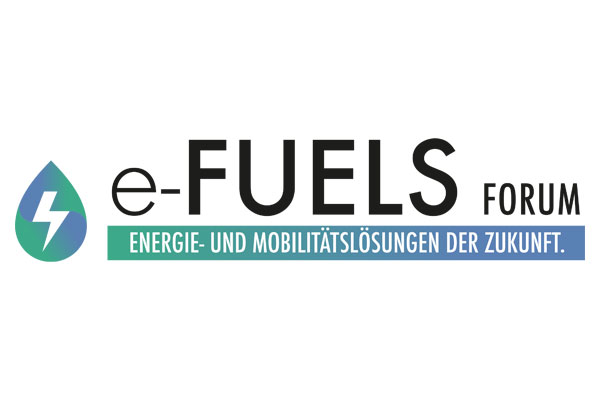eFuels in motorsports -
what advantages do synthetic fuels have?
The world of motorsports is in a state of flux. The main reason for this is climate change and the need to promote environmentally friendly technologies . More and more racing series are relying on electric drives and alternative fuels. One of these alternative fuels are the so-called eFuels.
The most frequently asked questions – answered by the eFuels Forum:
- What exactly are eFuels?
- Are synthetic fuels a real alternative in motorsport?
- Do eFuels also work in Formula 1?
- Where have eFuels already been used in motorsports?
- How are eFuels produced?
- What is the general cost of a liter of synthetic diesel?
- What advantage do eFuels have over electric propulsion?
- How useful are eFuels?
Always stay up to date with eFuels?

What exactly are eFuels?
eFuels are synthetic fuels produced from renewable energy sources such as wind and solar power. Their advantage is that they can be used in combustion engines – i.e. also in all racing engines in motor sports – without the need for major technical modifications. And because they are virtually climate-neutral, they make a major contribution to reducing greenhouse gas emissions at the same time.
Synthetic fuels have a similar composition and a range of properties to fossil fuels, such as gasoline or diesel. These can be burned without releasing CO2 or other harmful substances.
Are synthetic fuels a real alternative in motorsport?
Yes, synthetic fuels can be a real alternative in motorsports . Unlike battery electric vehicles, which are not yet suitable for all types of motorsports due to their limited range and charging time, combustion engines with synthetic fuels offer an immediate alternative. This can be easily integrated into existing motorsport series.
In addition, the use of synthetic fuels in motorsports also creates opportunities for research and development.
Good to know: Although synthetic fuels are currently more expensive to produce than fossil fuels, interest and investment in synthetic fuel production is growing. Therefore, as demand increases and technology advances, it is expected that costs will reduce and synthetic fuels will become a fully competitive option in motorsports and other industries
Do eFuels also work in Formula 1?
Yes, as Formula 1 continues to use internal combustion engines, eFuels could theoretically be a way to reduce the racing series’ CO2 emissions and switch to renewable energy. For this to happen, however, the existing emissions regulations and rules of Formula 1 would have to be adapted.
Have eFuels already been used in motorsports?
Yes, eFuels have already been used in motorsports. One example of this is the use of eFuels in the “Porsche Mobil 1 Supercup” series, where a fuel mixture of eFuels and conventional gasoline has been used since the 2021 season. In 2022, there was also a world premiere of eFuels at the 24 h race at the Nürburgring in the Toyota GR Supra GT4. The race car started successfully with synthetic fuel Racing eFuels 98 from CAC with up to 90% less CO² emissions.
In the motorcycle sector, for example, eFuels will be used in the MotoGP from 2024. There have already been further presentations at the Jump & Race Masters 2023 in Kiel.
But other racing series, such as the “ADAC GT Masters,” have also announced their intention to switch to eFuels in the future. The DKM 2023 kart racing series is already running on 100% eFuels today.
eFuels production: How are eFuels produced?
eFuels are produced by using renewable electricity, carbon dioxide (CO2) and water . The production process is called “power-to-liquid” and consists of several steps:
- Electrolysis: In this step, water is split into oxygen and hydrogen using renewable electricity.
- Synthesis: In this step, carbon dioxide (CO2) is captured from the air or from industrial waste gases and converted together with hydrogen into a synthesis gas.
- Fischer-Tropsch synthesis: The synthesis gas is then converted in a further step in a so-called Fischer-Tropsch reactor to liquid hydrocarbons, which can then be used as eFuels.
eFuels costs: What does a liter of synthetic diesel generally cost?
The price of 1 liter of eFuels depends on various factors, such as the type of eFuels, production method, and demand. Currently, eFuels are not yet available on a large scale, so prices are still higher compared to conventional fuels.
However, prices are expected to decline over time as eFuels are produced on a larger scale. It is then estimated that the production price is 1 euro per liter.
What advantage do eFuels have over electric drives in motorsports, for example?
eFuels have the advantage over electric propulsion in motorsport that they currently have a higher energy density and can therefore deliver higher power. Furthermore, they can be used in existing racing machines with internal combustion engines – whether in a race car, motorcycle or kart – without any conversion. This is particularly important for historic racing vehicles, which may not be converted due to their historical value.
In addition, eFuels will be able to be produced in large quantities in the future. Therefore, unlike electric drives, they can be deployed without extensive infrastructure. This is particularly advantageous in long-distance races where rapid refueling is required.
How useful are eFuels?
eFuels can be useful in motorsports, for example, if they help reduce CO2 emissions and make motorsports more sustainable. They also enable the performance of racing vehicles to be maintained .
In general, moreover, eFuels are a viable option for applications in, for example, aircraft, ships and heavy commercial vehicles, since their size and energy requirements mean that they cannot be effectively powered by batteries even in the future.
The biggest advantage: Thanks to eFuels, the existing infrastructure can continue to be used. The reason: eFuels can be refueled in existing combustion engines – without any further conversion. This is particularly important in countries with a large number of internal combustion engines.
Newsletter subscription
Notes on data protection
Our free newsletter informs you regularly by e-mail about product news and special promotions. The data you enter here will only be used to personalize the newsletter and will not be passed on to third parties. You can unsubscribe from the newsletter or revoke your consent at any time by emailing . Your data will be deleted within 2 months after termination of the newsletter receipt, provided that the deletion does not conflict with any legal retention obligations. By sending the data you have entered, you consent to the data processing and confirm our privacy policy.

